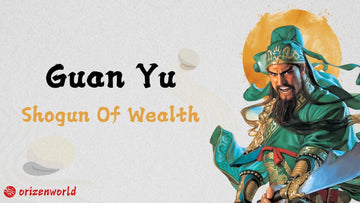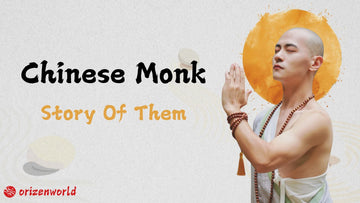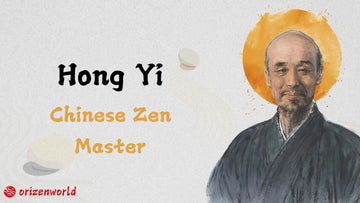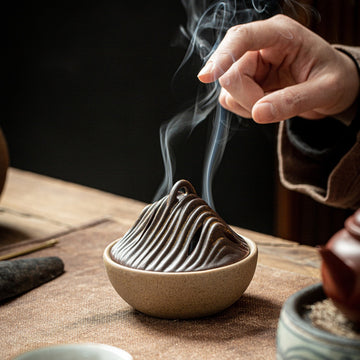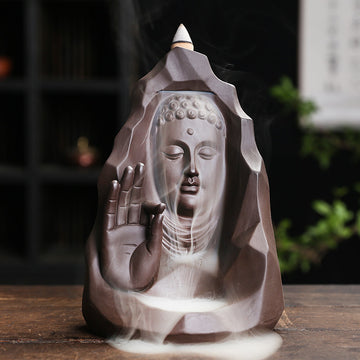If you walk into a shop or business owned by Chinese individuals—particularly restaurants, night bars, or karaoke venues—you’re likely to encounter a statue of Guan Yu, a symbol revered as the God of Wealth.
The title of a God of Wealth often stems from a person’s historical reputation for exceptional financial skills or the ability to attract wealth during their lifetime. For instance, some individuals became associated with wealth because they excelled in business. However, when you delve into history books, there’s no evidence suggesting that Guan Yu had a knack for business or financial acumen. This raises an intriguing question: why is Guan Yu considered a God of Wealth?
In today’s article, I’ll uncover the secret behind this fascinating association. Let’s explore Guan Yu’s story and understand why he holds such a prominent place in Chinese beliefs about fortune and prosperity!

Guan Yu, also known as Lord Guan or Guan Gong, was a legendary Chinese general who lived during the late Eastern Han Dynasty and the Three Kingdoms period (circa 160–220 AD).
Renowned for his loyalty, righteousness, and martial prowess, Guan Yu served under the warlord Liu Bei and became one of the most celebrated figures in Chinese history. His legacy extends beyond military achievements, as he is revered in Chinese culture as a symbol of brotherhood, honour, and unyielding integrity.
Guan Yu’s life was marked by extraordinary accomplishments on the battlefield. He played a pivotal role in assisting Liu Bei in establishing the Shu Han kingdom, one of the Three Kingdoms. His military campaigns, such as his famous crossing of the five passes and slaying of six generals, showcased his fearlessness and strategic brilliance. Guan Yu was also entrusted with guarding Jing Province, a vital stronghold during the turbulent times of the Three Kingdoms, further solidifying his reputation as a capable and trustworthy general.

Despite his remarkable achievements, Guan Yu’s life ended tragically. In 219 AD, during a campaign against the rival state of Wu, he was captured and executed after a series of missteps in battle. His death marked the end of an era but immortalised him as a cultural icon. Over time, he was deified and honoured as a god of war, justice, and, unexpectedly, wealth, reflecting his enduring influence in Chinese history and spirituality.
As mentioned before, Guan Yu is celebrated as a loyal and devoted partner to his lord, Liu Bei. His unwavering commitment to the Shu Han cause during the Three Kingdoms period is a hallmark of his character. Through trials and adversities, he stood by Liu Bei, demonstrating an unparalleled sense of loyalty. This steadfastness has elevated Guan Yu as a paragon of righteousness in Chinese culture, embodying virtues such as faithfulness and moral integrity that are highly revered.
In addition to his loyalty, Guan Yu’s martial prowess has made him a powerful symbol in Chinese military traditions. Often referred to as the God of War, he is seen as a protector and guardian against evil forces. His association with strength and courage is immortalised in statues and artworks depicting him with his Green Dragon Crescent Blade. Temples dedicated to Guan Yu often serve as places where soldiers and civilians alike seek blessings for protection and bravery.

Guan Yu, originally from Shanxi, is honoured with the world's largest statue of him in his hometown, standing an impressive 61 metres tall.
Interestingly, Guan Yu’s legacy extends beyond loyalty and protection—he is also known as an unexpected God of Wealth. Despite no historical record of his business acumen, his reputation for integrity has made him a patron of prosperity. His image is widely displayed in businesses and homes, believed to attract fortune and encourage honest dealings. This role reflects the adaptability of his symbolism in various facets of Chinese culture.
Guan Yu’s transformation from historical figure to deity represents a unique bridge between history and spirituality. Worshipped across East Asia, his story is celebrated in religious practices, temples, and festivals. He is not only remembered for his deeds but also venerated as a spiritual figure embodying universal values.
Through his multifaceted roles, Guan Yu continues to inspire generations. His legacy as a symbol of loyalty, integrity, and protection remains deeply rooted in Chinese tradition, transcending time and space.
In ancient Chinese mythology, the pantheon of wealth gods was diverse and significant. Figures such as Bi Gan, Guan Zhong, and Bai Gui were known for their financial acumen as officials, while Fan Li and Duanmu Ci (Zi Gong) achieved great wealth through trade. Zhao Gongming, a Taoist immortal, became a deity protecting fair commerce. However, Guan Yu’s transformation from a military general to a god of wealth is unique and perplexing. Unlike others whose association with wealth is clear, Guan Yu’s military life seemingly had no ties to financial matters, making his deification as a wealth god an intriguing process.
The metamorphosis of Guan Yu from a general to a deity was gradual and multifaceted. His path to divinity began with his elevation among ancient Chinese military figures, an arduous journey in itself. After his death, Guan Yu was posthumously titled "Zhuang Miao" (壮缪), a less-than-complimentary title implying inconsistencies between reputation and deeds. Such a designation highlights that even within Shu Han, where he served, his legacy was contentious. For centuries, Guan Yu's standing remained modest, as evidenced by his exclusion from early compilations of deified historical figures like Tao Hongjing's Zhen Ling Wei Ye Tu.
The Tang Dynasty marked the first turning point when Guan Yu was adopted into Buddhism as a guardian deity, albeit with lingering folk undertones. However, his rise to official recognition as a god began in the Song Dynasty. Stories of Guan Yu’s miraculous interventions, such as aiding Song troops in battle, led to state-sponsored worship. By the time of Emperor Song Huizong, Guan Yu was conferred multiple noble titles, cementing his status as a divine protector of the state, particularly in military contexts. This ideological shift was deeply influenced by the Song Dynasty’s struggles against northern invaders, paralleling Guan Yu's loyalty and resistance in his lifetime.
The link between Guan Yu and wealth emerged during the Song Dynasty through his association with the Jiezhou Salt Pond, a vital source of national revenue. Legends tell of Guan Yu defeating the malevolent spirit Chiyou to restore the salt pond's productivity, intertwining his legacy with this critical economic resource. This narrative elevated Guan Yu as a protector of commerce and prosperity, particularly significant for Shanxi merchants who depended on salt trade revenues. These merchants, known as Jinshang, actively promoted Guan Yu worship, establishing temples in his honour.
By the Ming and Qing Dynasties, Guan Yu had become synonymous with loyalty and integrity, values highly esteemed in commerce. His worship spread beyond Shanxi merchants to become a cultural norm among Chinese traders.

In overseas Chinese communities, Guan Yu temples often served as hubs for commercial activity and dispute resolution, further solidifying his reputation as a god safeguarding wealth and trust.
In summary, Guan Yu’s transformation into a god of wealth reflects a complex interplay of historical events, cultural narratives, and economic needs. From a celebrated warrior to a protector of commerce, Guan Yu's story embodies the adaptability of Chinese folk religion, creating a deity who bridges martial honour with mercantile prosperity. His legacy as the God of Wealth continues to inspire reverence and trust across cultures and borders.
Guan Gong (关公), a symbol of justice and righteousness, holds significant Feng Shui functions for dispelling negative energies, warding off evil, and neutralising adversaries. His presence has been revered in Feng Shui practices for centuries.
Neutralising Sha Qi (negative energy): For homes facing detrimental forms like sharp corners (Sha Qi), reversed bow formations, or other harmful structures, placing a Guan Gong statue wielding a blade towards the source can effectively dispel these adverse influences.

Protecting the household: In homes troubled by excessive Yin energy, unusual occurrences, or chronic illness among residents, Guan Gong's presence acts as a guardian, promoting peace and security.

Attracting wealth and improving fortune: Entrepreneurs, martial professionals, or individuals facing poor luck or interpersonal conflicts can honour Guan Gong to invite prosperity, resolve conflicts, and stabilise fortunes. His statue embodies protection, abundance, and justice.
The placement of a Guan Yu (关公) statue is crucial in Feng Shui. When positioned correctly, it brings wealth and protection, but improper placement can offend the Martial God of Wealth, leading to misfortune. Here are the essential guidelines to follow.
Face the Main Door
A Guan Yu statue should typically face the main door, as this position helps ward off negative energies entering the home. Ensure there is some distance between the statue and the door to avoid overemphasis. However, if the doorway's energy conflicts with this placement, it’s acceptable to modify the position while maintaining a commanding view of the space.
Directional Alignment
The ideal placement is sitting north facing south, a favourable orientation in Feng Shui. Alternatives like east facing west or west facing east are also acceptable. However, never position the statue south facing north, as this is considered disrespectful to any deity.
Stable and Respectful Backing
The statue must have a solid wall as its backing, symbolising stability and respect. Avoid placing it against walls shared with the toilet or kitchen, as these areas are deemed unclean. Guan Yu’s placement should also steer clear of bedrooms to prevent his powerful, martial aura from disrupting health.
Avoid Conflicts and Disrespect
Do not place Guan Yu statues alongside ancestor tablets or in proximity to the God of Literature Wealth. Each entity serves distinct purposes, and conflicting energies may diminish their efficacy. Proper placement honours Guan Yu’s role as a powerful protector and wealth-bringer.

